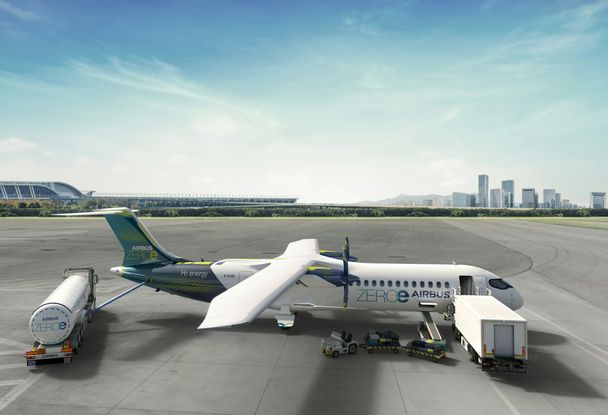The Future is Calling: Unveiling Airbus' Private 5G Network

Airbus’ digital transformation is taking another leap forward thanks to the deployment of its private 5G communications network. Rolling out initially in France, the high-speed network will contribute to a profound change in the way the company designs and manufactures its products.
Smartphones and tablets are proliferating across Airbus’ workshops and production facilities, as their use grows ever wider. Pictures and other visual assets, already very much in evidence, are gaining in importance. The volume of information transferred to and from aircraft is increasing exponentially.
Airbus’ purpose is to pioneer sustainable aerospace for a safe and united world, and it’s a world built on data. Employees produce, transmit and use huge volumes of data daily and this digitisation of activities needs a solid, highly efficient and secure IT infrastructure. That's why Airbus has taken the lead by developing its own 5G network. The network guarantees the company's independence from public networks, providing greater protection from cyber threats.
5G, or fifth-generation mobile networks, improves on the services, applications and features (voice calls, text messaging, internet connectivity etc.) developed through previous generations. 5G can achieve a throughput of up to 1.4 gigabytes per second, or four times more than the current Airbus WiFi. The network offers new services, higher speeds and greater capacity. A much larger volume of data can be exchanged without network congestion.
Specific frequencies
Certain precautions were necessary when rolling out the network. There had to be no interference with aircraft in service. The Airbus network uses specific frequencies to ensure it doesn’t cover runways and other locations where aircraft manoeuvre.
Human health had to be also taken into account. An external audit carried out by experts in industrial safety measures confirmed that the network's microwave emissions comply with French and European regulation.
Instant data input at the final assembly line
5G signals offer uninterrupted connectivity wherever the network is in use, even in areas where coverage was previously patchy or non-existent. Airbus operators can use compatible tablets and smartphones in any connected industrial facility and this seamless connectivity paves the way for improved efficiency and productivity. All outdoor or dense and complex areas at the A350 final assembly line in Toulouse are now connected to this network. Operators can input machine data to a mobile device instantaneously, whereas previously they would need to return to their work station, sometimes hundreds of metres away, to manually log information.
Private 5G will also support autonomous guided vehicles, such as the robots which transport fuselage sections between stations at the Airbus Atlantic Montoir-de-Bretagne plant or those which drop off tools and assembly kits at the A321 final assembly line in Toulouse Lagardere. The network has the additional, important benefit of secure communications for on-site security teams and firefighters.
Airbus’ private 5G network is being rolled out across Airbus commercial aircraft production locations. Already in operation in Montoir-de-Bretagne and in the final assembly lines in Toulouse (France), it will be fully deployed in Hamburg, Stade and Bremen (Germany), Broughton (UK) and in Getafe (Spain) during 2025. Airbus Tianjin (China) and Mobile (USA) sites will soon follow. Pilot roll outs are in preparation at Airbus Helicopters and Airbus Defence and Space. All the company's industrial sites are gearing up to deploy transformative 5G, demonstrating Airbus' commitment to innovation and progress.



